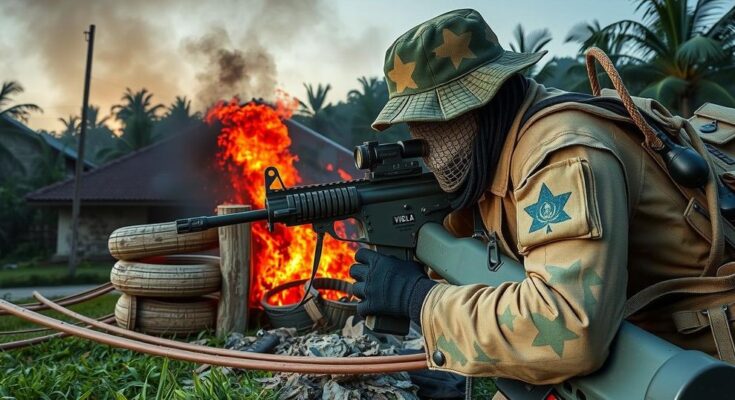The conflict between the Teke and Yaka communities in Kwamouth, DRC, began in June 2022 over land rights, resulting in significant displacement and humanitarian needs. By January 2024, approximately 2.78 million people required assistance due to violence affecting multiple provinces. The situation necessitates urgent humanitarian action and a focus on restoring stability.
The conflict in Kwamouth territory within Mai-Ndombe province of the Democratic Republic of Congo (DRC) has its origins in a protracted dispute over land rights between the Teke and Yaka communities, which has unfolded since June 2022. The Teke, who consider themselves the rightful owners of the land along the Congo River, have faced increasing tensions with the Yaka community that has established itself in the region for several decades. As population pressures, resource scarcity, and political tension escalate, violence has erupted, leading to significant humanitarian needs across affected provinces.
The interaction between the Teke and Yaka communities has historically involved systems of shared land use; however, this delicate balance has deteriorated amid growing conflict. Reports indicate that between June 2022 and early March 2023, Yaka militias, referred to as Mobondo, conducted raiding actions against numerous Teke villages, exacerbating intercommunal violence that has since spread to several provinces, including Kwango and Kwilu. By late October 2024, an estimated 146,000 people had been displaced due to this conflict, although accurate data collection remains a challenge, hindering full comprehension of the crisis.
By January 2024, nearly 2.78 million individuals in Kwango, Kwilu, and Mai-Ndombe provinces were identified as in need of humanitarian assistance, highlighting critical shortages in shelter, non-food items (NFIs), food supplies, water and sanitation (WASH) services, healthcare, and education. As the conflict disrupts essential services and impedes humanitarian efforts, the security environment remains unstable. Indeed, from January to December 2024, 84 violent incidents were recorded in the region, leading to 191 casualties, with violent clashes particularly concentrated in the western areas where Mobondo militias have consolidated control.
The Democratic Republic of Congo has experienced longstanding ethnic tensions, particularly between the Teke and Yaka communities residing along the Congo River. This tension has culminated in violent conflict primarily rooted in disputes over land rights, compounded by socio-economic strains such as population growth and resource competition. Understanding the historical context of community interactions is critical to comprehending the current humanitarian crisis affecting millions in the wider region. With ongoing violence, relief efforts face substantial challenges, emphasizing the urgent need for stabilized security and humanitarian access.
The conflict in the western Democratic Republic of Congo illustrates the complexities stemming from long-standing ethnic disputes fueled by external pressures such as population growth and political manipulation. The situation has led to significant humanitarian needs, with millions affected by violence, displacement, and the disruption of essential services. Immediate attention to both security and humanitarian issues is vital to address the needs of the affected populations and facilitate recovery in the region.
Original Source: reliefweb.int




